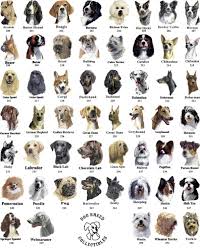breed
英 [briːd]
美 [briːd]
- vi. 繁殖;饲养;产生
- vt. 繁殖;饲养;养育,教育;引起
- n. [生物] 品种;种类,类型
- n. (Breed)人名;(英)布里德
使用频率:

记忆方法
将“breed”分解为“break”,想象“break”像是一个绳子或障碍,而“breed”就像是绳子或障碍被突破,暗示着品种、种类的繁衍和发展,从而帮助记忆“breed”的含义。
以上内容由AI生成, 仅供参考和借鉴
中文词源
breed 繁殖
词源同brew, 蒸,加热。原指小鸡孵化的过程。
英语词源
- breed
-
breed: [OE] The Old English verb brēdan came from West Germanic *brōdjan, a derivative of *brōd-, which produced brood. This in turn was based on *brō-, whose ultimate source was the Indo-European base *bhrē- ‘burn, heat’ (its other English descendants include braise, breath, and probably brawn). The underlying notion of breed is thus not ‘reproduction’ so much as ‘incubation, the warmth which promotes hatching’.
=> braise, brawn, breath, brood - breed (v.)
- Old English bredan "bring young to birth, carry," also "cherish, keep warm," from West Germanic *brodjan (cognates: Old High German bruoten, German brüten "to brood, hatch"), from *brod- "fetus, hatchling," from PIE *bhreue- "burn, heat" (see brood (n.)). Original notion of the word was incubation, warming to hatch. Sense of "grow up, be reared" (in a clan, etc.) is late 14c. Related: Bred; breeding.
- breed (n.)
- "race, lineage, stock" (originally of animals), 1550s, from breed (v.). Of persons, from 1590s. Meaning "kind, species" is from 1580s.
权威例句
- 1. If they are unemployed it's bound to breed resentment.
- 如果他们失去工作,一定会产生怨恨。
- 2. Many animals breed only at certain times of the year.
- 很多动物只在一年的某个时候交配繁殖。
- 3. a hardy breed of sheep
- 适应力强的绵羊品种
- 4. a rare breed of miniature horses
- 一种罕见的小矮马
- 5. The parents are trying to breed their son a musician.
- 这对父母尽力要把儿子培养成为音乐家.